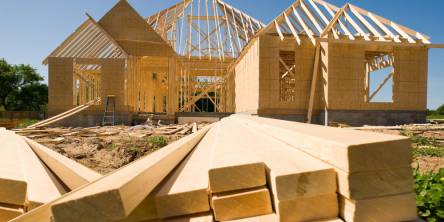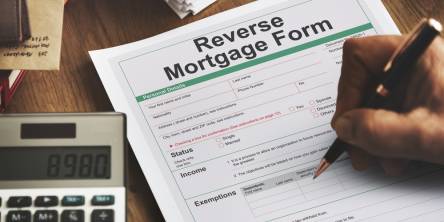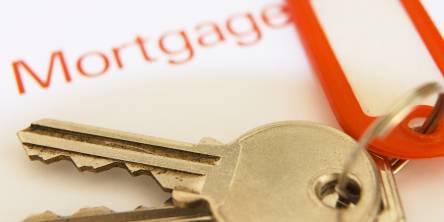Evaluating the Pros and Cons of FHA 203(k) Rehab Loans in Massachusetts
What Massachusetts Home Buyers Should Know About FHA 203(k) Loans If you're looking for a fixer-upper or looking to renovate your current property in Massachusetts, an FHA 203(k) rehab loan may be worth considering. This unique loan program offered by the Federal Housing Administration (FHA) allows borrowers to finance a home's purchase and rehabilitation costs.
However, like any financial product, there are pros and cons associated with FHA 203(k) rehab loans. From many years of experience as a real estate agent, you must do your homework with this loan product. Understanding how the 203k loan works is essential. Maximum Real Estate Exposure is an excellent resource for its inner workings. Let's look closer at the advantages and disadvantages for Massachusetts homebuyers.
Pros of FHA 203(k) Rehab Loans
1. One Loan Covers All: One of the most significant advantages of this rehab loan is that it combines the cost of purchasing or refinancing a property with the funds required for renovations.
Instead of obtaining multiple loans or dipping into personal savings, you can access a single loan to cover both aspects, simplifying the financing process. Avoiding making financial mistakes is crucial.
2. Lower Down Payment: These rehab loans typically require a lower down payment than traditional mortgages. With an FHA loan, you may secure financing with as little as 3.5% down, making homeownership more accessible for borrowers who may not have a substantial down payment saved.
3. Flexible Credit Requirements: FHA loans are known for their more lenient credit requirements than conventional mortgages. Borrowers with less-than-perfect credit history may still qualify for an FHA 203(k) rehab loan, provided they meet other eligibility criteria. This flexibility can be especially beneficial for individuals who have experienced financial setbacks but can repay the loan.
4. Improved Property Value: FHA 203(k) rehab loans can help you transform a rundown property into your dream home by financing the cost of renovations. They work perfectly for fixer-uppers or properties where an owner is selling as-is. Once the renovations are complete, the value of your property may increase significantly, potentially leading to higher equity and improved resale potential.
Cons of FHA 203(k) Rehab Loans For Massachusetts Buyers:
1. Strict Eligibility Requirements: FHA loans have more relaxed credit requirements, but borrowers must meet specific eligibility criteria. These criteria include debt-to-income ratios, employment history, and proof of stable income. Failure to meet these requirements may result in loan denial.
2. Mortgage Insurance Premium (MIP): FHA loans, including the 203(k) rehab loan, require borrowers to pay a mortgage insurance premium. This premium protects the lender in case of default.
3. Limited availability: Not all lenders offer these rehab loans, so finding a lender specializing in this type of financing may be challenging. This limited availability could potentially limit your options and make it more difficult to secure financing.
4. Stringent qualification requirements: FHA 203k rehab loans have stricter qualification criteria than traditional FHA loans. Lenders typically require a higher credit score, a lower debt-to-income ratio, and a larger down payment. Meeting these requirements can be more challenging for some borrowers. Avoiding making financial mistakes is crucial.
5. Time-consuming process: The FHA 203k rehab loan process can be pretty lengthy and involved. It requires detailed documentation, multiple inspections, and a thorough property appraisal. This can extend the timeline for closing the loan and starting the renovations.
6. Higher interest rates and fees: They often come with higher rates and fees than traditional FHA loans or conventional mortgages. These loans are considered riskier due to the additional costs associated with the renovation process. The higher interest rates and fees can increase the overall cost of borrowing.
7. Limited renovation options: The loan can cover a wide range of renovation projects, but it does have certain limitations. For example, luxury upgrades or additions significantly increasing the property's value may not be eligible for financing through this loan. Additionally, particular renovations, such as swimming pools or landscaping, may not be covered.
8. Strict appraisal requirements: The property purchased or renovated with a 203k rehab loan must meet specific requirements. The appraiser will assess the property's condition and estimate its after-repair value (ARV). If the appraisal comes in lower than expected, it could affect the financing available for the renovations.
9. Ongoing maintenance and repair responsibilities: Once the renovations are complete, the homeowner is responsible for maintaining and repairing the property. This includes regular upkeep and addressing any future repairs that may arise.
Considering the ongoing costs and responsibilities of owning a home undergoing extensive renovations is essential. Remember, while the loan can be a helpful financing option for purchasing and renovating a property, it's essential to carefully consider these potential drawbacks and weigh them against the benefits before deciding.
Final Thoughts
With any mortgage program, it is essential to vet the lender. Many excellent Massachusetts lenders can provide a 203(k) loan. Before making a selection, do your homework. If you have a buyer's agent, ask them for a referral for a lender they do business with.
Working with the wrong mortgage lender can be a significant mistake that will cause headaches and stress. Of course, a borrower should also do many things before visiting a lender. Financial preparation is the key to having a successful home purchase.
Similar Articles
In 2022, a staggering $427 billion was invested by homeowners in home improvements and repairs. For seniors navigating the challenging realm of renovations to improve their living spaces, the prospect can be both thrilling and intimidating
Land loans and construction loans are two different financing options when it comes to building your own home. Land loans are ideal if you don't plan to build right away, while loans for construction are suitable for starting building immediately. There are various types of land loans, each with different requirements and interest rates.
As retirement looms, many seniors face financial challenges that demand creative solutions. In recent years, reverse mortgages have emerged as an increasingly popular option for older homeowners seeking to leverage the equity in their homes to improve their financial situation.
A land loan is used to purchase a plot of land. You may want to buy land to build your dream home or start a business. If you are looking at getting a land loan, a lot will depend on what you plan to use the land for.
The prevalent mess in economies due to corona skips no part of the economy and affects the core of stability. Of course, real estate cannot be an exception and have to confront the alterations that the notorious COVID-19 applies to.
If you purchased the house with less than a 20% down payment, the lender probably required you to buy private mortgage insurance. This also is true for any refinancing loans with less than 20% equity. Private mortgage insurance protects the lavender from the elevated risk presented by a borrower with a small down payment.
Buying a home is probably one of the largest, most significant purchases of your life, so when you need to get a mortgage, you want to make sure you're getting the best lender and the best deals. How do you do it? These four tips and advice will help you choose a great lender and get the best deals.
Offset mortgages can save an individual a great deal of money. They can either shorten the term and enable you to be mortgage-free sooner or help you in reducing the monthly payments. But still many of us fail to understand this concept. In fact, some are not even aware of its existence.






c6f1.jpg)


